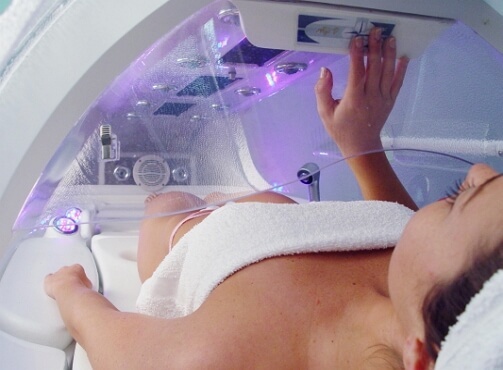Serotonin syndrome: what is it, symptoms, treatment, prognosis
Content
- general information
- What is Serotonin Syndrome?
- Pathophysiology
- Causes of Serotonin Syndrome
- Symptoms and Signs
- Diagnostics and differential diagnostics
- Serotonin Syndrome Treatment
- Prognosis and complications
- Prophylaxis
general information
Serotonin Syndrome is a rare toxic condition mainly caused by an excess of serotonin in the central nervous system. This results in a variety of mental, autonomic, and neuromuscular changes that can range in severity from mild to life threatening.
Most cases are self-limiting. Severe serotonin toxicity is almost always caused by drug interactions involving two or more "serotonergic" drugs, at least one of which is usually a selective serotonin reuptake inhibitor (SSRI) or inhibitor monoamine oxidase.
Treatment for serotonin syndrome includes stopping the offending drugs, aggressive supportive care, and sometimes serotonin antagonists such as cyproheptadine. Treatment for the condition for which serotonergic drugs have been prescribed should be reviewed.
What is Serotonin Syndrome?

Serotonin syndrome (serotonin intoxication) refers to a drug-induced syndrome characterized by mental, autonomic and neuromuscular changes. This is not a specific adverse reaction, but a dose-related range of toxic symptoms that are significantly associated with an increase in the concentration of serotonin in the central nervous system person.
Serotonin syndrome was first described in 1955, but during the 1990s, reports became more common as signs, symptoms, and precipitates became more widely recognized.
Although serious cases have been reported with overdose of one drug, they usually only occur when two or more are combined. "Serotonergic" drugs (even if each is at a therapeutic dose), which probably leads to an excessive increase in concentration of serotonin.
The true incidence of serotonin syndrome is unknown due to the lack of a large number of cases, a wide range of symptoms and variation in definition.
Treatment depression the world has changed significantly over the past two decades. The use of tricyclic antidepressants is decreasing, and the use of selective serotonin reuptake inhibitors (SSRIs) is increasing. In 2001, the number of prescriptions for SSRIs exceeded the number of prescriptions for tricyclic drugs by half. Other new antidepressants with serotonergic properties are also being introduced. Although SSRIs and other “atypical” antidepressants are generally considered to have lower toxicity than tricyclic, minor toxic effects are common, which can cause serious toxicity serotonin.
Pathophysiology
Serotonin (5-hydroxytryptamine, 5-HT) is synthesized from the amino acid tryptophan. It has central and peripheral effects, and there are at least seven different types of serotonin receptors. In the center serotonin acts as a neurotransmitter, affecting mood, sleep, vomiting, and pain perception. For this reason, depression is often associated with low serotonin concentrations. Peripherally, the primary effect of serotonin on muscles and nerves. Most of the serotonin is synthesized and stored in the intestinal enterochromaffin cells, where it causes contraction of the smooth muscles of the gastrointestinal tract. Serotonin is also stored in platelets and promotes platelet aggregation. It also acts as a mediator of inflammation.
Read also:Amyotrophy
The pathophysiology of serotonin syndrome remains poorly understood. It is believed to be the result of stimulation of the 5-HT 1A and 5-HT 2 receptors, and the classes of drugs involved in the syndrome reflect this theory. These include serotonin precursors, serotonin agonists, serotonin releasers, serotonin reuptake inhibitors, monoamine oxidase inhibitors, and some herbal medicines.
Common migraine medications such as sumatriptan and dihydroergotamine are also considered "serotonergic" drugs. There are isolated reports of cases of mild to moderate serotonin syndrome associated with these drugs. In most cases, either SSRIs or MAOIs and at least one other medication are used. Typically, drugs with two different mechanisms of action on serotonin must be present for severe serotonin syndrome to develop.
Several other drugs can cause serotonin syndrome, although how this happens is unclear. Drugs that affect catecholamines, tryptamine and dopamine may have a secondary effect on the release or reuptake of serotonin.
Causes of Serotonin Syndrome
Serotonin syndrome most often occurs after a dose increase (or overdose) of a potent serotonergic drug or shortly after the addition of a second drug. Some of the drugs have a very long half-life (for example, fluoxetine) and may be discontinued several weeks before the syndrome. The victim may have a history of recent overdose or use of illegal drugs, especially ecstasy, amphetamines, or cocaine. Herbal medicines can also be the culprit (St. John's wort, ginseng, S-adenosyl-methionine).
Symptoms and Signs

The clinical signs of serotonin syndrome are highly variable, reflecting the spectrum of intoxication. The beginning can be dramatic and insidious. The most useful features in the diagnosis of serotonin syndrome are hyperreflexia and inducible / spontaneous / ocular clonus (disordered movement). However, many patients taking SSRIs can show one or more clinical signs without significant toxicity.
If the condition becomes severe, it can turn into a life-threatening situation and may include signs such as:
- heat;
- sudden fluctuations in blood pressure and / or heart rate;
- lose consciousness.
Diagnostics and differential diagnostics
The diagnosis of serotonin toxicity is purely clinical. It is based on the recognition of a different combination of signs and symptoms in the presence of selected "serotonergic" drugs. A diagnosis should not be made without determining the cause.
Read also:Asperger's syndrome - signs, symptoms, treatment, diagnosis
Research is generally not helpful in diagnosing serotonin syndrome, but it can help treat and rule out a differential diagnosis. White cell counts often rise slightly, and an increase in creatine kinase levels may occur.
Differential diagnosis includes neuroleptic malignant syndrome, dystonic reactions, encephalitis, tetanus and sepsisand poisoning with anticholinergic drugs, amphetamines, cocaine, lithium, monoamine oxidase inhibitors, salicylates and strychnine.
Serotonin toxicity can also be confused with discontinuation of antidepressant medication. This syndrome and other agitated deliriums have many clinical features, but the most specific features are clonus (erratic movement), hyperreflexia, and hyperemia.
Serotonin Syndrome Treatment

Recognition of the potential for serotonin syndrome and diligent supportive care are the mainstays of treatment. All patients with moderate to severe serotonergic symptoms should be hospitalized. Persons with hyperthermia should be admitted to an intensive care unit.
All serotonergic drugs should be discontinued and care should be taken not to inadvertently inject other precipitates. Intravenous humidification is given to ensure adequate urine output. Careful monitoring of temperature, pulse, blood pressure, and urine is required. Hyperthermia may require aggressive cooling techniques. This can include cool water splashes, ice packs, wet towels.
Benzodiazepines can be used to control seizures and muscle hyperactivity. Specific treatment for hypertension is usually not required.
Serotonin antagonists are also used in the treatment of moderate to severe serotonin syndrome. Cyproheptadine is perhaps the most promising drug in this group. The starting dose is 4 to 8 mg orally. It can be repeated after two hours. If no response is observed after 16 mg, it should be discontinued. If there is a response, the dosing can be continued in divided doses up to 32 mg / day (eg, up to 8 mg four times a day). Other drugs that may be suggested for therapy include chlorpromazine and propranolol, but these have more contraindications and side effects.
Read also:Transient ischemic attack (TIA)
After recovery, the patient should be re-evaluated the current treatment for the condition for which the serotonergic drugs were prescribed.
Prognosis and complications
In most cases, serotonin syndrome is a self-limiting condition and resolves after drug use is stopped. Mild to moderate cases usually resolve within 24 to 72 hours. In severe cases, patients need intensive care, since the syndrome can be complicated by severe pyrexia, rhabdomyolysis, disseminated intravascular coagulation, and / or acute respiratory distress syndrome in adults.
Prophylaxis
Prevention of serotonin syndrome involves awareness of the toxic potential of serotonergic drugs. When using multiple antidepressants or changing them, the manufacturer's recommendations should be carefully considered. washout periods, and patients should also be informed of possible medicinal interactions.



